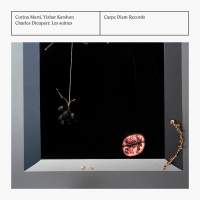Texte paru dans: / Appeared in: |
|
|
|
|
|
Reviewer: Bertil
van Boer Charles François Dieupart is one of those French Baroque composers from the age of Couperin, Lully, and Marais who during his lifetime found little solace at the French court and so removed himself to England, where he had a brief career. He was apparently born about 1667, and he may have come from a craftsman family. His father was apparently a candlemaker, but he may have had ties to the French court orchestra. Nothing is known of his musical education, though he often styled himself as a pupil of Archangelo Corelli. By 1703 he was active in London as an accompanist at the Drury Lane Theatre, and he often performed in concerts as a violinist as well. He also composed masques in English, for which he was sometimes paid late, if a surviving petition from 1708 for Thomyris is any indication. It would seem that, for a period early in the century, and apparently during the years 1722–26, if any additional accompaniment or musical insertion was required for stage works, Dieupart was the fellow to accommodate you. In the last year, he was one of the founders of the Academy of Ancient Music, but little was heard from him the remaining years of his life prior to his death in 1740 in extreme poverty. Dieupart’s fame as a keyboardist was considerable during the central portion of his life, and apart from François Couperin, he can be considered one of the main proponents of the keyboard suite. Indeed, Johann Sebastian Bach regarded his work highly enough to copy out his Six Suites de Clavecin. This he passed on to his pupil Christian Penzel. These copies diverge in several respects from the original edition, which may mean that Bach made a number of minor “improvements.” This disc provides material for four of the six, drawn mainly from two separate editions, from 1701 and 1705 respectively, in which the original keyboard suites were augmented by versions that added a recorder or traverso, a continuo, and the occasional other instruments. These conform to the typical French pattern of a lengthy overture followed by a succession of dances. Inevitably a gentle allemande is followed by a fast-paced courante, a solemn sarabande, and a short gavotte. The final movements usually include a minuet, but in Suite II this is replaced by a Passepied, all before the inevitable gigue. Of course, there are no shortages of recordings of the versions for solo keyboard. There is a nice version on Centaur by Joseph Payne from 1998, for instance, and in 2002 flautist Francis Colpron and crew did all six for Atma. This makes it all the more confusing why recorder player Corina Marti and harpsichordist Yizhar Karshon, who performs Suite VI without the other instruments, would revive this. Dieupart’s music is competently composed, but for all that I find that there is a certain sameness and predictability. That these may have been the sort of innocuous works Bach might have chosen for his patron in Weimar can be taken for granted, and since they are all good representatives of their respective genres (including the dances), they will have appealed to his sense of pedagogical practice as well. But as works of interest, they are all quite similar. Unlike his countryman Couperin, who approached different aspects of people, nations, and characterizations in his Pièces de Clavecin, Dieupart’s music is curiously static. This state of affairs requires more focus and attention to the performance details in order to make this come alive. I had hoped that this would be the case here, especially since Dieupart’s suites require just that little something extra. Although Yizhar is a fine keyboardist, and the other members of his continuo group are appropriately discreet in their accompaniment, their work lacks the energy I was expecting to bring out the subtleties in the music. Marti’s recorder playing I find similarly to be without much enthusiasm, with the occasional wispy tone. In short, I find it difficult to recommend this recording for everyone, as there are better out there. | |
|
|
|
|
Cliquez l'un ou l'autre
bouton pour découvrir bien d'autres critiques de CD |
|




